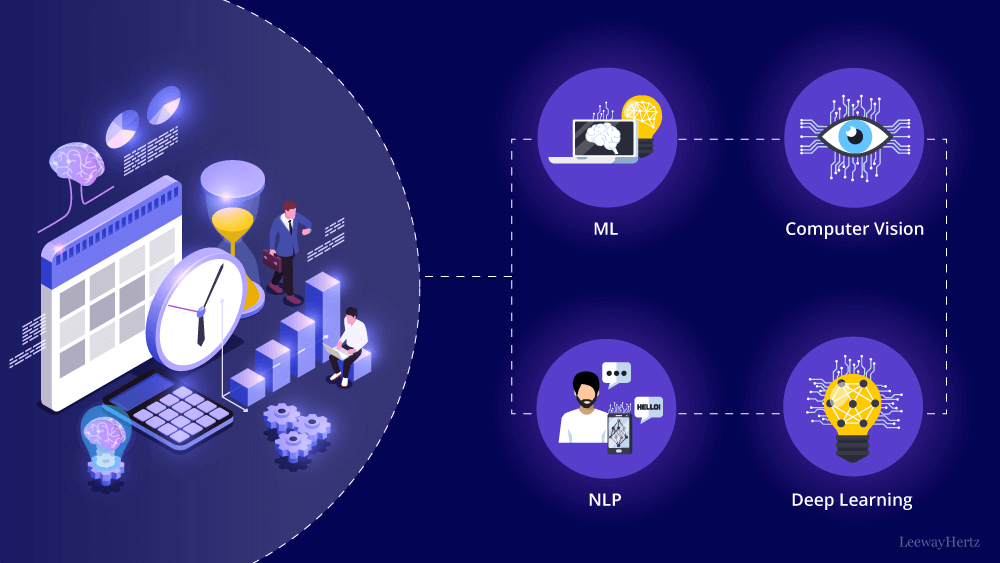07/15/2024

In today’s fast-paced business environment, efficiency is key to maintaining a competitive edge. Companies are increasingly turning to artificial intelligence (AI) to streamline their operations and optimize workflow processes. By automating routine tasks and integrating intelligent systems, businesses can achieve unprecedented levels of productivity and accuracy. This article explores the transformative impact of AI on business process automation and its role in enhancing workflow efficiency.
Business Process Automation (BPA) involves the use of technology to execute recurring tasks or processes in a business where manual effort can be replaced. The primary goal is to improve efficiency, reduce errors, and free up valuable human resources for more strategic tasks. Traditionally, BPA involved basic scripting and rule-based systems, but the advent of AI has elevated automation to new heights.

AI excels at automating repetitive and mundane tasks that once required significant human effort. For instance, data entry, invoice processing, and customer queries can now be handled by AI-powered systems. By utilizing machine learning algorithms and natural language processing (NLP), AI tools can process large volumes of data quickly and with high accuracy, reducing the risk of human error and speeding up overall operations.
AI systems can analyze complex datasets to provide actionable insights that inform decision-making. Predictive analytics, for example, can forecast trends, customer behavior, and potential issues, enabling businesses to make proactive adjustments. AI-powered dashboards and reporting tools offer real-time data visualization, helping managers make informed decisions faster and more effectively.
With AI, businesses can better allocate resources by predicting demand and identifying inefficiencies. AI tools can analyze historical data to forecast needs, allowing companies to optimize inventory levels, manage workforce schedules, and allocate budgets more efficiently. This dynamic approach helps in minimizing waste and ensuring that resources are used where they are most needed.

AI enhances customer service through chatbots and virtual assistants that provide instant responses to customer inquiries. These AI-driven systems can handle a wide range of customer interactions, from answering common questions to processing orders, freeing up human agents to focus on more complex issues. This not only improves response times but also ensures a consistent and high-quality customer experience.
Beyond simple tasks, AI can also automate complex workflows that involve multiple steps and decision points. Robotic Process Automation (RPA) combined with AI can handle intricate processes such as compliance checks, multi-step approval workflows, and cross-departmental integrations. This level of automation ensures that processes are executed consistently and efficiently, reducing delays and improving overall workflow.
While AI offers substantial benefits, integrating it into business processes comes with challenges. Companies must consider factors such as data privacy, integration with existing systems, and the need for ongoing maintenance and updates. Additionally, there is a need for skilled personnel to manage and oversee AI systems, ensuring that they operate effectively and continue to meet business needs.
AI-driven automation is transforming the way businesses approach workflow efficiency. By handling repetitive tasks, enhancing decision-making, optimizing resource allocation, improving customer interactions, and automating complex processes, AI enables companies to operate more efficiently and effectively. As businesses continue to evolve, embracing AI for process automation will be crucial for staying competitive and achieving long-term success. With the right implementation strategy and ongoing management, AI can be a powerful tool for driving efficiency and growth in the modern business landscape.
Back to blogRelated Articles Related Articles
Contacts Contacts Contacts
Empowering Your Vision with Custom AI Solutions. Elevate Your Online Presence with Intelligent Innovation.
Al Barsha Mall - Al Barsha 2 - Dubai - United Arab Emirates
Show on mapFill out the form and we will contact you shortly